Littering may appear to be a minor issue, but in Danville, its impacts extend far beyond mere inconvenience, affecting the environment, wildlife, and local finances.
The presence of cigarette butts, plastic bags, and fast food packaging is becoming increasingly concerning, and it is a problem that requires our immediate attention.
This discussion will delve into the serious consequences of littering, highlight the common items that are discarded, and explore the underlying reasons for this behavior.
More importantly, it will present practical steps that can be taken to address littering and safeguard our community.
Together, we can work towards making Danville a cleaner, greener place for all.
The Impact of Littering in Danville
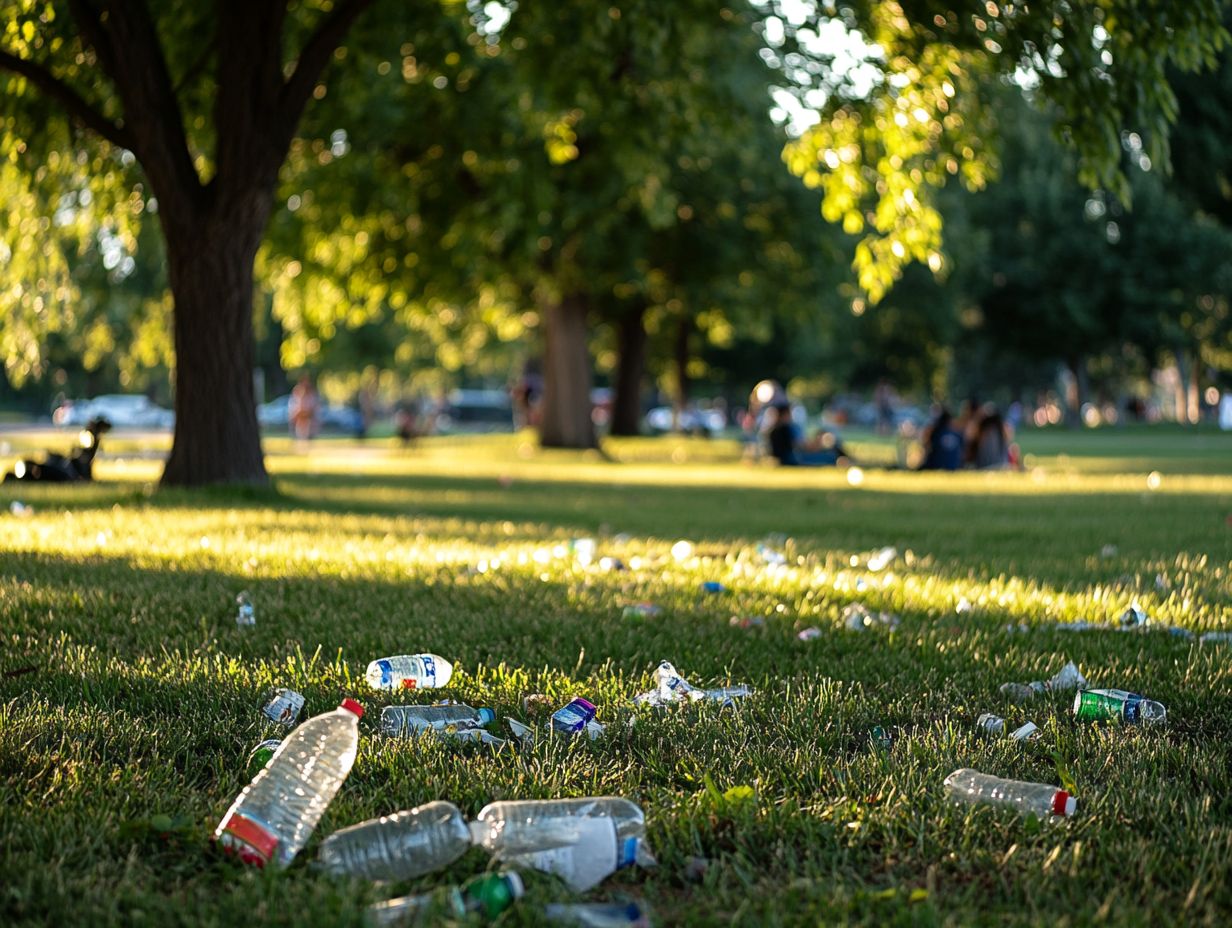
Littering in Danville has significant impacts that go beyond just tarnishing the beauty of the community; it also poses serious environmental challenges that can affect both public health and wildlife.
When waste products like plastic bags and fast food packaging are improperly disposed of, they contribute to various types of pollution, including land, air, and ocean pollution.
Organizations such as Keep America Beautiful are dedicated to addressing these issues by promoting community cleanup initiatives and raising awareness about the vital role of environmental stewardship.
Additionally, there are legal consequences in place to discourage residents from participating in this pressing problem.
Environmental Consequences
The environmental consequences of littering are significant, resulting in considerable pollution of our land, air, and water resources that are essential for sustaining local ecosystems.
In Danville, various types of waste—such as plastic bags, cigarette butts, and food wrappers—pose serious risks to wildlife by exposing them to toxic materials, thereby disrupting their habitats and food sources.
Plastic pollution can entangle animals and introduce harmful chemicals into their bodies, while organic waste may attract pests and contribute to harmful algal blooms in local waterways.
Additionally, air pollution stemming from improperly discarded items can release toxic fumes, worsening respiratory issues for both humans and animals.
Collectively, these consequences endanger the delicate balance of nature, diminishing biodiversity and undermining the resilience of the natural resources that are vital for future generations.
Effects on Local Wildlife
Littering in Danville has a detrimental effect on local wildlife, as animals frequently mistake waste products, such as plastic, for food.
This misunderstanding can result in serious health problems or even death.
This unfortunate situation is particularly common among marine species.
For instance, turtles often confuse plastic bags for jellyfish, while seabirds may ingest plastic debris, mistakenly believing it to be part of their natural diet.
Additionally, small mammals and birds can become entangled in discarded fishing lines, which can cause injuries that impair their ability to hunt or escape from predators.
The ecological consequences of improper waste disposal extend far beyond the immediate harm inflicted on individual animals.
Such practices disrupt food chains, alter habitats, and contribute to a decline in biodiversity.
To promote the health of both wildlife and ecosystems, it is crucial to engage in responsible waste disposal and foster community awareness to address this growing crisis.
Costs to Taxpayers
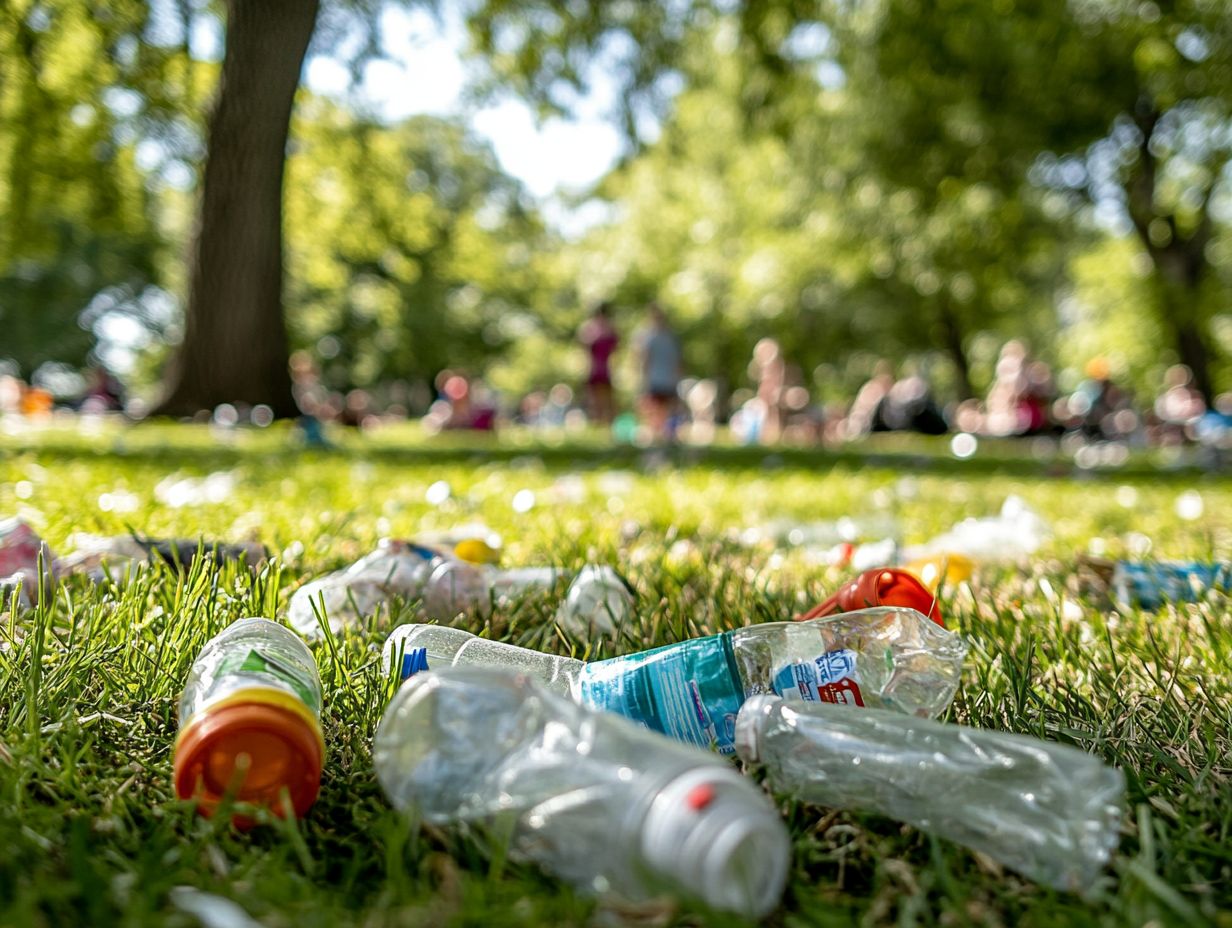
The financial burden of littering significantly impacts taxpayers, as substantial public funds are directed toward waste management and cleanup efforts that could be avoided if proper disposal practices were adhered to.
The costs involved in maintaining clean public spaces can be quite substantial, covering everything from routine garbage collection and disposal to specialized cleanup operations following events or natural disasters.
Local governments frequently find themselves investing in public education campaigns aimed at raising awareness about littering and its repercussions, which adds another layer of expense to their budgets.
If community members were more conscientious about disposing of their waste correctly, these costs could decrease, and potential savings could be redirected toward essential services such as education and infrastructure development, ultimately fostering a more sustainable and thriving community.
In the end, a collective commitment to environmental stewardship has the potential to turn financial challenges into opportunities for growth and improvement.
Commonly Littered Items in Danville
In Danville, it’s common to see certain items littering public spaces, such as cigarette butts, plastic bags, and fast food packaging.
These items play a significant role in contributing to the pollution problem in the area.
Cigarette Butts
Cigarette butts rank among the most common forms of litter, often discarded without much thought.
Unfortunately, they contain harmful chemicals that can leach into the environment, contributing to pollution.
These seemingly harmless remnants are made from cellulose acetate, a type of plastic that can take a decade or longer to decompose completely.
As a result, each discarded cigarette butt poses significant environmental challenges.
Toxins like nicotine, heavy metals, and other harmful compounds can seep into the soil and waterways, creating a ripple effect that threatens aquatic ecosystems and poses serious risks to wildlife that might mistakenly ingest these toxic remnants, thinking they are food.
The overwhelming volume of cigarette waste complicates cleanup efforts, placing a strain on resources and leading to significant costs for municipalities that strive to maintain clean and healthy environments.
This alarming level of pollution highlights the urgent need for more effective waste management strategies and public education on smoking habits and responsible disposal practices.
Plastic Bags
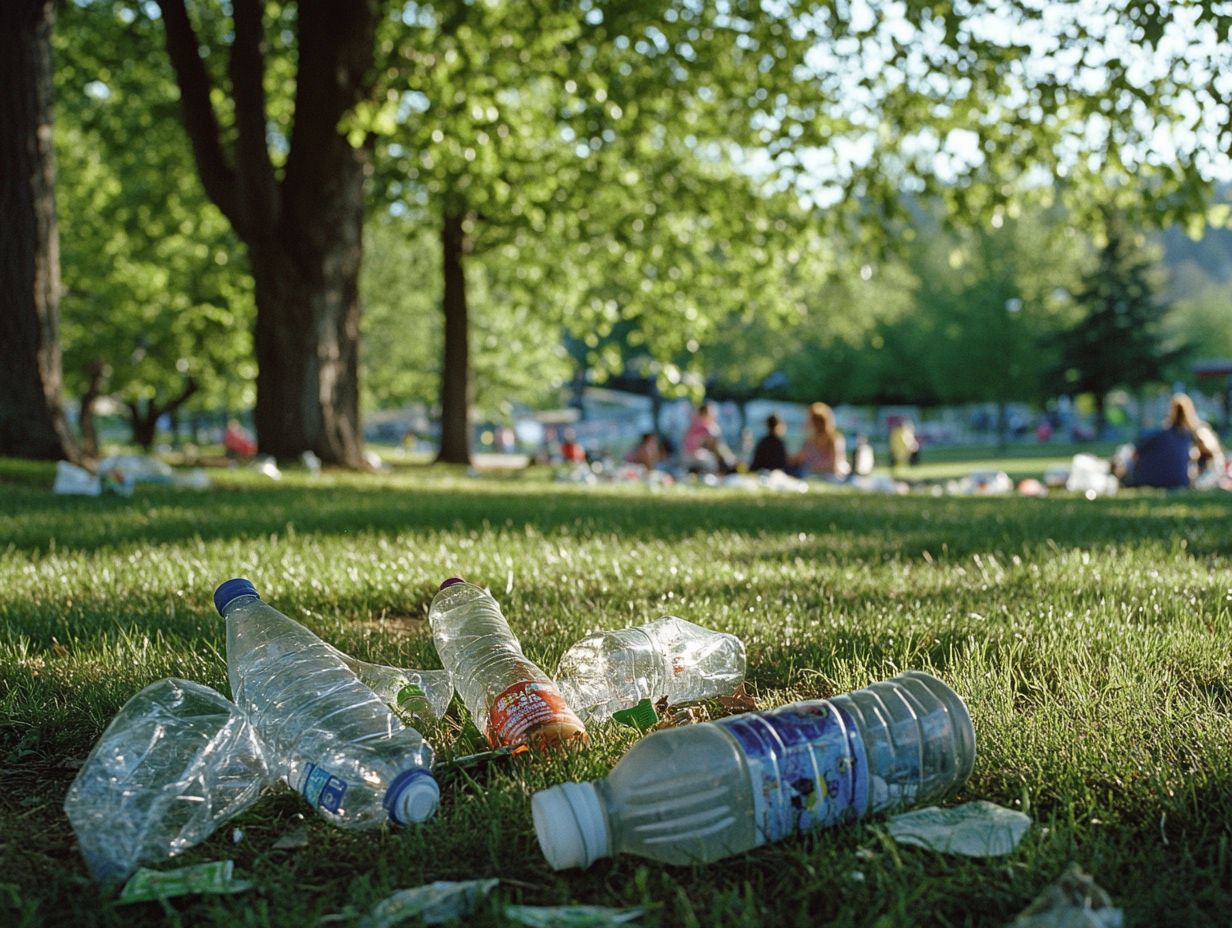
Plastic bags have gained a notorious reputation for their contribution to littering, primarily due to their lightweight nature, which allows them to be easily carried by the wind.
This characteristic leads to widespread environmental pollution.
Unfortunately, these bags frequently find their way into our oceans, where they pose a considerable threat to marine life and ecosystems.
For example, sea turtles often mistake plastic bags for jellyfish, which can result in the ingestion of harmful substances.
Additionally, larger marine animals may become entangled in plastic bags, leading to injury or even death.
In response to this escalating crisis, various jurisdictions have launched campaigns aimed at reducing plastic waste.
These initiatives often include bans on single-use bags and the promotion of reusable alternatives.
Organizations such as the Ocean Conservancy are actively supporting cleanup efforts and awareness programs, encouraging communities to take proactive measures in minimizing their plastic footprint.
Such initiatives are essential for fostering a culture of sustainability and protecting our planet for future generations.
Fast Food Packaging
Fast food packaging frequently litters the streets of Danville, with items such as wrappers and containers that not only detract from the area’s visual appeal but also pose potential risks to public health.
This widespread littering highlights a pressing issue for urban environments, contributing to environmental pollution that extends well beyond the immediate area.
When people improperly dispose of these materials, which are often non-biodegradable, they can leach harmful chemicals into the soil and waterways, further complicating waste management challenges.
Local communities face the dual task of not only cleaning up this common debris but also working to restore the aesthetic value of their surroundings.
Community initiatives aimed at combating littering often require additional funding and resources for effective cleanup efforts, emphasizing the critical role of individual accountability in creating a cleaner and healthier environment.
Why Littering is a Problem in Danville
The problem of littering in Danville is worsened by a general lack of awareness and education regarding proper waste disposal practices.
Additionally, inadequate waste management systems contribute to the challenge, making it difficult for residents to engage in responsible environmental stewardship.
Lack of Awareness and Education
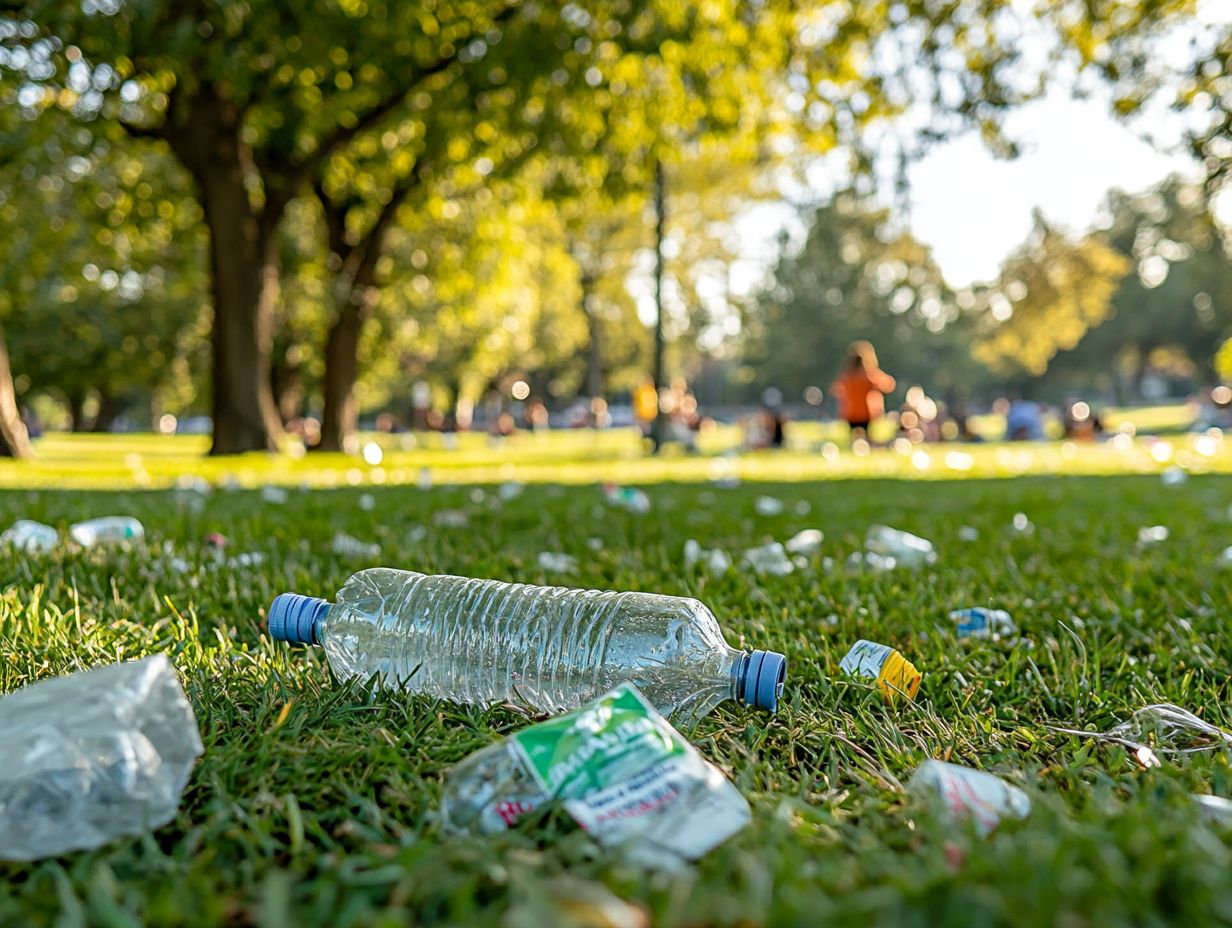
A significant factor contributing to littering in Danville is the lack of awareness and education regarding the environmental impact of improper disposal and the importance of assuming the role of environmental stewards.
As communities confront this pressing issue, educational initiatives and awareness campaigns can play a crucial role in fostering a sense of responsibility among residents.
For example, local schools in Danville have introduced programs that emphasize the importance of recycling and waste management, leading to a noticeable reduction in litter around school zones.
In addition, the city’s collaboration with environmental organizations to host workshops and community clean-up events has not only educated residents about the harmful effects of littering on wildlife and ecosystems but has also inspired collective action.
These programs help cultivate a more informed citizenry that recognizes the value of maintaining a clean environment, often resulting in lasting changes in behavior.
Inadequate Waste Management Systems
Inadequate waste management systems in Danville play a significant role in the ongoing littering issue, as the lack of sufficient public waste disposal options leaves residents with limited means for responsible waste disposal.
This deficiency contributes to increased trash accumulation in public spaces, which ultimately harms the environment and detracts from the community’s overall aesthetic appeal.
A comprehensive analysis of current waste management practices highlights several gaps, particularly regarding the accessibility of waste bins and recycling facilities.
By enhancing these systems, local authorities have the opportunity to not only reduce the amount of litter but also encourage residents to embrace more environmentally friendly habits.
Furthermore, investing in educational programs focused on proper waste disposal and recycling can help foster a stronger community spirit, leading to a more conscientious approach to waste management among the inhabitants of Danville.
How You Can Help Combat Littering
Addressing the issue of littering in Danville necessitates a collective effort from the community.
This includes proper waste disposal, participation in community clean-up events, and raising awareness about the importance of environmental stewardship.
Proper Disposal of Waste
Proper waste disposal is essential for preventing littering and protecting public health, as it ensures responsible management of waste products and prevents them from contributing to pollution.
Many communities are embracing various methods to enhance waste management, such as recycling and composting.
These practices not only decrease the amount of waste that ends up in landfills but also help conserve valuable resources.
Through recycling, recovered materials can be transformed into new products, while composting processes organic waste into nutrient-rich soil.
For these initiatives to be truly effective, it is important for community members to actively engage in the efforts. This participation can take many forms, including:
- Sorting recyclables at home,
- Attending local clean-up events,
- Educating others about sustainable practices.
Such involvement nurtures a cleaner environment and fosters a sense of responsibility toward local ecosystems.
Participating in Community Clean-Ups
Participating in community clean-ups serves as an effective means of addressing littering.
Not only do these activities help to clear public spaces, but they also cultivate a sense of community and environmental stewardship.
By rallying friends, family, or neighbors, individuals can contribute to beautifying their surroundings while simultaneously strengthening local connections.
To discover or organize such events, one can often find listings on various platforms, including social media groups and community bulletin boards.
Local environmental organizations frequently host clean-up drives, making it beneficial to connect with them for support and information.
Engaging in these initiatives enhances the overall appearance of the neighborhood and plays a vital role in public health.
Cleaner environments help reduce the risk of disease and promote overall well-being.
When communities unite for such causes, they foster a supportive atmosphere that encourages collective responsibility and pride in their shared spaces.
Spreading Awareness
Spreading awareness about the effects of littering is essential for fostering change, as well-informed communities are more likely to recognize their responsibilities as environmental stewards and to discourage littering behaviors.
To accomplish this, organizations can utilize a multifaceted approach, which may include social media campaigns that emphasize the harmful impacts of littering on wildlife and local ecosystems.
Additionally, workshops can engage community members in practical activities that promote proper waste disposal and recycling practices.
Providing educational materials in schools and community centers can help instill a sense of responsibility among younger generations.
Furthermore, strong community leadership is crucial to this initiative; leaders can inspire collective action by mobilizing volunteers for cleanup events and facilitating discussions about sustainability.
By cultivating a culture of environmental care, the message against littering can resonate more profoundly within the community.
